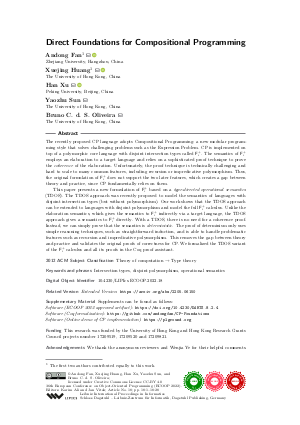LIPIcs.ECOOP.2022.18.pdf
- Filesize: 1.13 MB
- 28 pages

 Creative Commons Attribution 4.0 International license
Creative Commons Attribution 4.0 International license








































Feedback for Dagstuhl Publishing